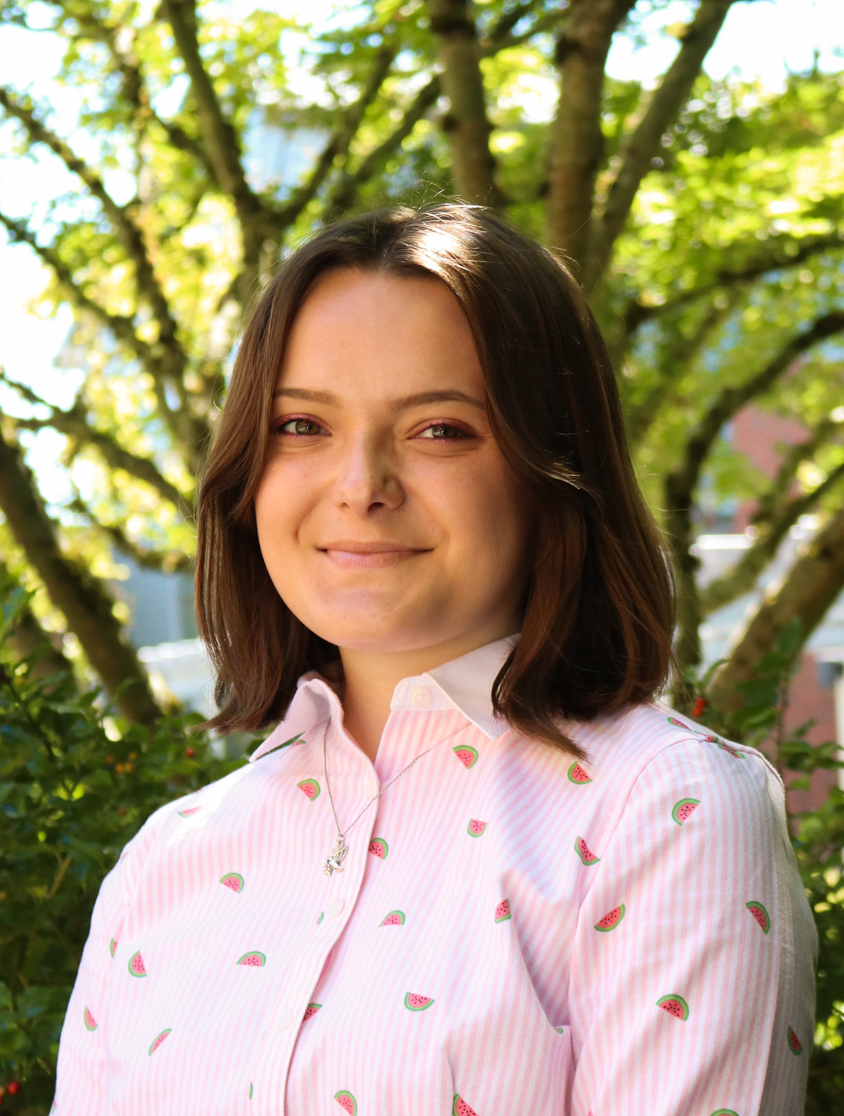Chancellor Mel Netzhammer hosted the second WSU Vancouver Campus Conversation April 16 to answer more questions regarding the COVID-19 impact on WSU Vancouver. After registering through a link to join the conversation, individuals asked additional questions using the Zoom chat box function. Below are questions that were discussed virtually.
Netzhammer hosted the Campus Conversation with special guest, Kirk Schulz, president of WSU. Also attending the livestream was the chancellor’s leadership cabinet, Public Safety’s Lieutenant Dave Stephenson, Vice Chancellor for Academic Affairs Renny Christopher, Vice Chancellor for Student Affairs and Enrollment Domanic Thomas, Vice Chancellor for Finance and Operations Lynn Valenter, Vice Chancellor for Research and Graduate Education Christine Portfors, campus Director of Human Resources Julia Getchell and the chancellor’s Chief of Staff Sherri Bennett. Each individual answered questions based on their knowledge of how campus operations have been affected by the COVID-19 pandemic, as well as what the WSU system plans to accomplish moving forward.
Netzhammer began the Campus Conversation by welcoming attendees and change of scenery. He then discussed topics related to commencement and summer semester.
Q: Are there any updates for in-person commencement?
A: Netzhammer said, after checking in with the Sunlight Supply Amphitheater where commencement is traditionally held, the amphitheatre will not be available for a duration of August, other than a possible weekday later in the semester. He explained administration is looking for alternatives for holding commencement if it cannot be held at the amphitheater.
“[We are] looking for other opportunities whether we move back to campus, to Portland, or a high school stadium that might work to support commencement. All of those considerations are under way at the moment,” Netzhammer said.
Q: Updates about summer and fall semester?
A: Netzhammer explained summer semester will be held online through distance learning, referencing an email sent on April 3 by Bryan Slinker, interim provost and executive vice president of WSU Pullman. Although plans for online learning have been established for summer semester, decisions about fall semester are still undecided.
“What about the fall [semester]? That is one of the areas we really do not know. We are working in anticipation of being back face-to-face in the fall semester … so we need to plan for that, but we cannot plan on that with a degree of certainty at this point,” Netzhammer said. “For those of you students watching the livestream today, if you have not filled out the FAFSA, please fill it out. If you have friends who have not filled out the FAFSA, make contact with them, encourage them to fill out the FAFSA.”
Q: Dave Stephenson’s campus operation announcements.
A: Stephenson said there will be a few new developments happening on the WSU Vancouver campus. Health Services and the Student Wellness Center will be open for general health care appointments on Mondays from 11 a.m. to 4 p.m., serving students who do not have insurance or access to other health care facilities. Services do not include testing for COVID-19. He explained the Clark College nursing facility will also open for nursing students. Additionally, there will be emergency construction on asphalt passes throughout campus.
“So, some good things come out of our slow down, but otherwise Public Safety stands ready to provide access and support and security at the WSU Vancouver campus,” Stephenson said.
Q: What are some new developments in the graduate and research programs at WSU Vancouver?
A: Portfors explained that the graduate school has been frequently updating its website for information. Graduate students will no longer be required to have physical ink signatures from committee members for approval of students’ dissertations. An electronic signature option will be available instead. She also said graduate students will not have the option for pass or fail course grades, but can utilize the X or I grades, which means work could not be completed due to extenuating circumstances and can be finished at a later date.
“There has been a lot of conversation among people, the associate deans for research and vice chancellors with the graduate school. But currently, the graduate school is not willing to have a pass or fail option. It is really for the benefit of the students and their programs, but faculty do have the option of using the ‘X’ or the ‘I’ when appropriate, if a student needs additional time to complete course requirements. Graduate students can request a pass, fail grade option though, for any undergraduate work that they are taking, but they need to be aware that if they do this, then those courses will not meet the requirement to be included as grade credit in their program of study,” Portfors said.
Q: What is the state of the WSU strategic plan? Will the next draft be different in light of changes that have happened in the past few weeks?
A: Schulz explained the WSU strategic plan will change accordingly and consider every campus’ situational needs.
“Are we still moving forward with [the] strategic system plan? Absolutely. Will we need to color some parts of that plan due to COVID-19? Yes,” Schulz said. “We will continue to work together and be flexible, but those core principles written down are absolutely mandatory to have at this point in time for us moving forward.”
Q: Where is WSU Vancouver at regarding the food pantry donations?
A: Thomas said alumni and community members have come together to donate large amounts of food to students, staff and faculty in need. He encouraged students to utilize the Cougar Food Pantry and Office of Student Involvement care package resources, as there is a social distancing plan in place to ensure health and safety requirements are being met.
“We had 500 pounds of food given and donated to us over the last week, so a big shout-out and thank you to that work that is being done in the community, and the care that folks have for our students,” Thomas said,
Q: How will students receive monetary funding for support?
A: Thomas moved on to explain results of the newly established Coronavirus Aid, Relief and Economic Security (CARES) Act relief fund and emergency dollars given to students in need by WSU, as well as what that means as part of financial aid support.
“We have emergency funds we are dispersing to students. They are on the link to the student financial services website. Other emergency funds you will see on there is … the Crimson Community Grant [as] another option for our students,” Thomas said. “In terms of the CARES Act funding, that funding that we applied for, I believe a little over ten million dollars, is intended to go to the WSU system specifically for students in the form of aid. That aid is intended to start being disbursed as of next week. We are developing plans that will be committed to the executive policy group for the system and having system representation, but tentatively that plan is really to focus on those students most in need. Identifying those students and utilizing, as Mel mentioned, the FAFSA. Some of the students that have filled that out, we can identify and look at their specific needs along the way.”
Q: What will student orientation look like when moved fully online?
A: Thomas said the university will do its best to accomodate incoming students through an online platform.
“That may mean that a portion of [orientation] is online, even if those state standards are relaxed. But our plan right now is, we are moving forward with the fully online plan to accomodate a fully online orientation program,” Thomas said. “Whatever that looks like in summer and fall, we will get to it and support students, and sign them up for classes, get them connected to our community in some way shape or form.”
Q: Does the Student Access Center need additional help?
A: Thomas explained that the access center is seeking note-takers and other forms of support, but that the technology available seems to satisfy students in need of additional resources.
“There is a lot of electronic and technological resources that have been fantastic [at] supporting students,” Thomas said. “We are seeking note takers and other support, I would say be at the ready to jump in [when] we go out and make those requests. At this point, I believe students are being served to the best of our abilities.”
Q: How are you fighting Zoom fatigue? Do you have tips for students who have a hard time sitting in Zoom meetings?
A: Getchell explained that it is important to be mindful of posture, take care of your back when sitting, find other places around the home to work, and take a stretch break every 25 minutes of sitting.
“I also recommend finding other places in your home, or the place you are working, besides the typical place you work. Personally, I checked out places in my backyard where I could attend Zoom meetings with my headphones in [with] my iPad. So get out and get a change of scenery. Also, make sure you are taking breaks lots during the day. It is not easy to sit at the computer meeting after meeting, email after email. Make sure you are getting outside, stretching, eating good food and taking care of yourself during this time,” Getchell said.
The presentation concluded with goodbyes as Netzhammer requested everyone stay safe at home. As for future Campus Conversations, be sure to monitor your student email for further updates about campus operations and the COVID-19 pandemic.
You can view the Campus Conversation here.

Olivia is a senior studying English at WSU Vancouver.
